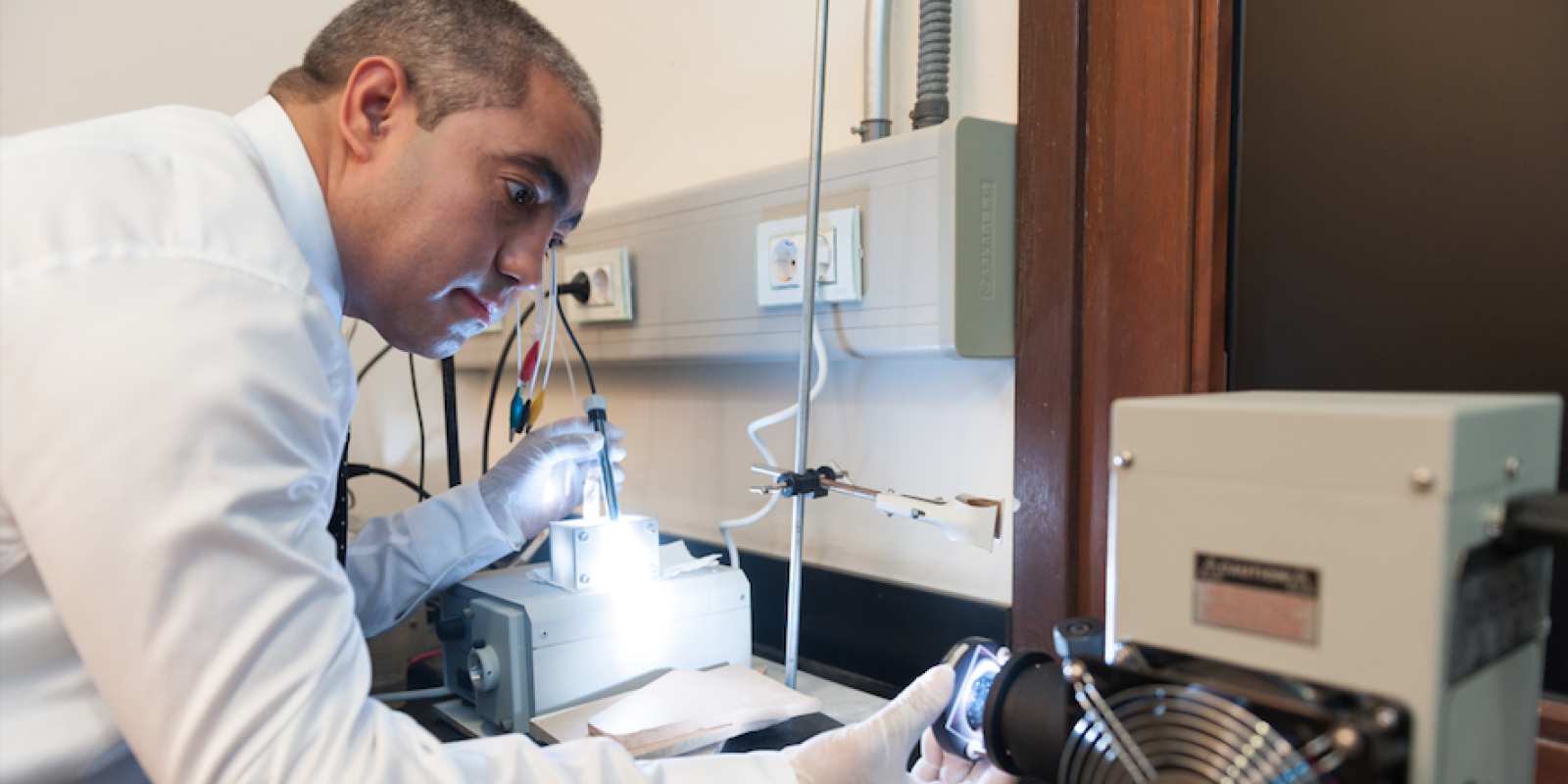
Solar Fuels, Clean Water, Face Mask Filters: Technological Solutions to Critical Issues
What stands out about research conducted by Nageh Allam, professor of materials engineering, is the ability to create highly efficient solar cells that are free of hazardous lead. The impact?
“The work demonstrates the ability to fabricate highly efficient solar cells for light harvesting and production of electricity using environmentally-friendly materials, without sacrificing the efficiency,” Allam said.
Solar cells are used to convert light from the sun into electrical energy. The use of solar cells is environment-friendly and saves resources. They are used to provide electricity to large areas and are also used in vehicles like cars and buses.
Allam was globally recognized as one of the top 2% most impactful scientists, being named in the Stanford-Elsevier's Scopus database of the most cited scientists. The list is created by experts at Stanford University, based on data from Elsevier’s Scopus. It includes the top 2% scientists in 22 scientific fields and 176 subfields and provides standardized information on citations, h-index, co-authorship-adjusted h-index, citations to papers in different authorship positions, and a composite indicator.
“This recognition lists the top 2% most impactful scientists worldwide and it means a lot to me as it reflects the quality of the work we are doing at AUC and its worldwide impact. More importantly, being the first of the list of those who were recognized from AUC gives me a great push to do more and more excellent work,” Allam said.
Allam's research paper on solar cells is in the Top 100 Scientific Reports materials science papers in 2020. The paper, Refractory plasmonics enabling 20% efficient lead-free perovskite solar cells, received 2,292 article downloads in 2020, placing it as one of the top 100 downloaded materials science papers for Scientific Reports in 2020. “This paper demonstrates the ability to enhance the efficiency of perovskite solar cells using cheap materials known as refractory plasmonics compared to the currently used gold and silver plasmonic materials,” Allam said.
Allam has a number of projects currently in the works. The Materials Research Laboratory at AUC covers a span of different topics ranging from energy conversion (solar fuels such as hydrogen, solar cells, biogas, CO2 reduction into useful fuels, etc.) to energy storage (batteries and supercapacitors). Additionally, given the fresh water shortage, Allam and his co-workers are developing novel methods for water desalination and water treatment. Given the current pandemic, they are also working to develop cheap and highly efficient face mask filters.
The applications of Allam’s research span a wide range of topics and target a number of current problems in our world. “I do my job to build human skills and provide technological solutions to some of the critical problems we are facing,” he said.
